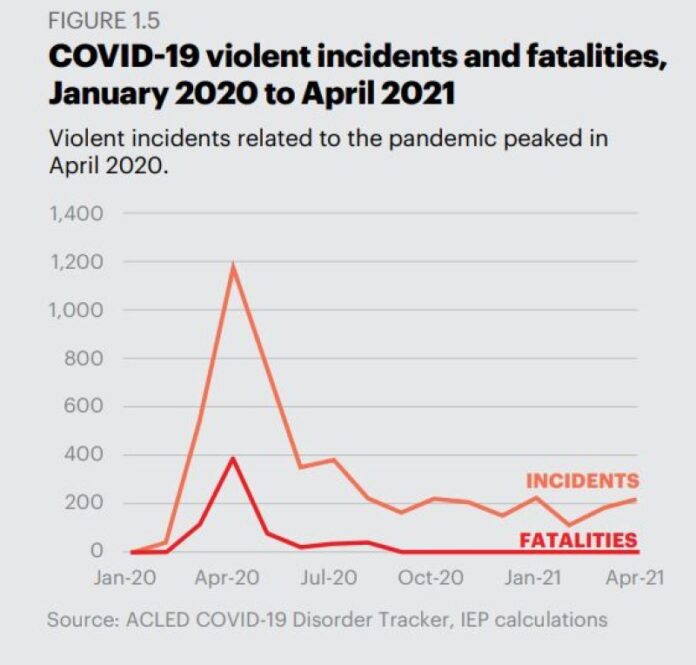The Institute for Economics and Peace (IEP), in its latest Global Peace Ranking Report, has observed that COVID-19 restrictions have increased conflict and violence, with more than 5,000 violent incidents recorded in 16 months.
IEP is a non-partisan and non-profit think tank dedicated to shifting the world’s focus to peace as a positive, achievable, and tangible measure of human well-being and progress.
- Ghana can be a potential hub to drive para-sports in Africa—IPC President
- Let’s observe COVID-19 safety protocols—Ga Mantse
The 2021 index noted that over 5,000 pandemic-related violent events were recorded between January 2020 and April 2021, with the level of civil unrest being fuelled in large part by responses to coronavirus restrictions.
It was also observed that the world had become less peaceful for the ninth time in the last 13 years, with the average level of a country’s peacefulness deteriorating by 0.07 percent over the past year.
The Institute stated that “peacefulness improved on average for the ongoing conflict domain, but deteriorated in both the militarisation and safety and security domains.”
It added that “this is the first time that the militarisation domain has experienced the largest deterioration.” Also, the report noted that “there is an increase in military expenditure as a percentage of GDP for the second straight year, with 105 countries deteriorating on this indicator, exacerbated in part by falling economic activity resulting from the COVID-19 pandemic.”
Speaking to the finding, organised crime expert, John Mark Pokoo, in an interview with the Ghana News Agency on Wednesday, explained that there was a failure on the part of some governments in understanding the pandemic beyond its health impacts.
That, he said, contributed to the increase in the civil arrests recorded for the period, noting that repressive states were able to control their citizenry better than democratic states.
“In repressive states where parliamentary debates are not required to approve some of the restrictive measures, the leader can just issue a statement and everyone will go to sleep. Those societies were able to keep their populations on lockdown much more than the liberal societies that will challenge such orders,” he explained.
He cited Ghana as an example, stating that “we had to go through an Executive Instrument (EI) process, granting more powers to the President to issue emergency orders.
He, however said, in some countries, that was not the case, leading to civil unrest, and advised that in such situations, more attention be paid to social life in addition to health concerns.

